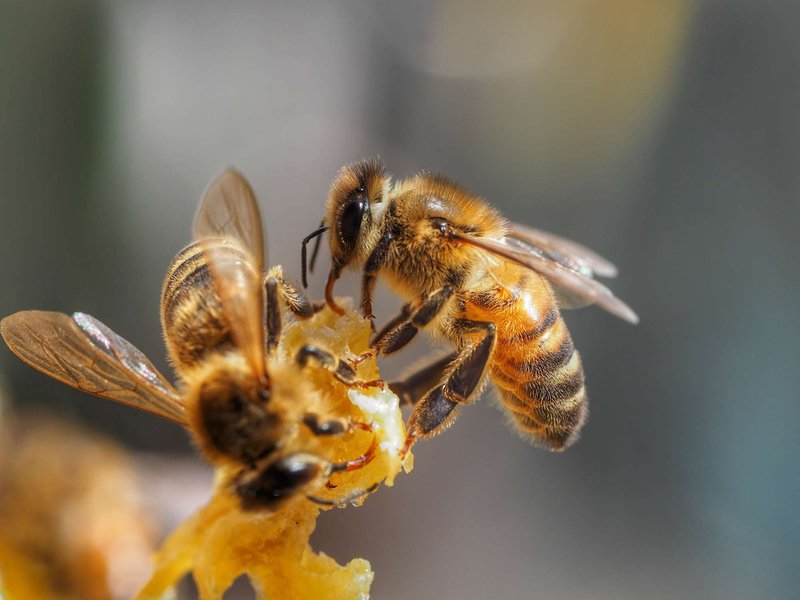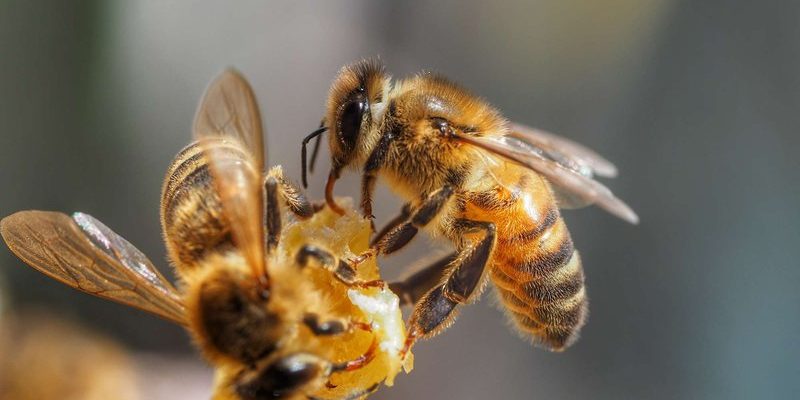
Imagine you’re at a picnic, enjoying the sun and a lovely sandwich, when a bee buzzes by. You might instinctively swat it away or freeze in fear. The truth is, bees are usually more focused on flowers than on people. While they can sting, understanding their behavior helps us see that they’re not out to harm us. So, let’s explore the world of honey bees and uncover whether they truly pose a threat to humans.
Understanding Honey Bee Behavior
Honey bees are social insects that live in colonies, which can contain thousands of bees. Each bee has a specific role, whether it’s foraging for food, taking care of the queen, or guarding the hive. These roles help the colony function smoothly. When it comes to stinging, bees usually do so in defense of their hive. They don’t typically go around stinging for no reason like some might think.
You might be wondering what triggers a bee to sting. Generally, they defend their hive when they feel threatened. If you accidentally get too close to a bee’s home, it might react. However, most bees will try to avoid confrontation and will only sting as a last resort. This isn’t to say you should provoke them—just remember, if you respect their space, they usually leave you alone.
So, what happens when a bee does sting? When a honey bee stings, it leaves its barbed stinger in your skin, which can cause pain and swelling. The bee ends up dying shortly after because it can’t remove the stinger. This makes honey bees quite different from wasps, which can sting multiple times without harming themselves.
Are Honey Bees Really Dangerous?
Now, let’s talk about the bigger picture. For most people, a honey bee sting is not life-threatening. However, there’s a caveat. Some individuals have allergic reactions to bee venom that can lead to severe health issues, including anaphylaxis. This is where things can become serious. If someone knows they have a bee allergy, they should carry an epinephrine auto-injector with them at all times, just in case.
In contrast, the vast majority of people are not allergic and can handle a sting without any long-term effects. In fact, some researchers believe that bee venom has potential health benefits and could be used in medical treatments! Crazy, right? It’s like honey bees are both a source of sweetness and a bit of a mystery.
But let’s not ignore the fact that, for those who are allergic, bee stings can be dangerous. That’s why it’s crucial to recognize the symptoms of an allergic reaction, such as hives, difficulty breathing, and swelling of the face. If you ever experience these after a sting, it’s essential to seek medical attention immediately.
How to Avoid Getting Stung
If you’re not a fan of getting stung (and let’s be honest, who is?), there are ways to avoid bee encounters. Here are some handy tips:
- Avoid Bright Colors: Bees are attracted to bright floral patterns. Wearing more muted colors can help you blend in.
- Stay Calm: If a bee approaches you, don’t flap your arms or panic. Staying still can help avoid provoking it.
- Don’t Swat: Swatting at a bee can trigger it to sting in defense. Just be patient and let it buzz away on its own.
- Cover Food and Drinks: Bees love sweet smells and sugary drinks. Keeping your food covered can prevent accidental visitors.
By being aware of your surroundings and taking a few simple precautions, you can drastically reduce the likelihood of a bee sting while still enjoying the great outdoors.
The Role of Honey Bees in the Ecosystem
Now that we’ve established that honey bees aren’t typically dangerous to humans, it’s important to recognize their role in our ecosystem. Bees are vital pollinators, meaning they help plants reproduce by transferring pollen from one flower to another. This process is crucial for many crops and wild plants, contributing significantly to our food supply.
Without honey bees, our diets would look quite different. Many fruits, vegetables, and nuts rely on bees for pollination. Think about it—without bees, we might not have apples, blueberries, or even almonds! It’s a scary thought, right? So, it’s essential to appreciate these little creatures and recognize that their presence is more beneficial than harmful.
Moreover, honey bees produce honey, which is not just a delicious treat but also has health benefits. Local honey can help with allergies and offers a natural source of energy. So, while they might seem risky at times, honey bees contribute significantly to our lives.
What to Do If You Get Stung
In case you do find yourself on the receiving end of a bee sting, knowing how to respond can make a big difference. Here’s a quick guide to handling a bee sting:
1. Remove the Stinger: If the stinger is still in your skin, gently scrape it out with a fingernail or card. Don’t pinch it, as that can release more venom.
2. Clean the Area: Wash the sting site with soap and water to prevent infection.
3. Apply a Cold Compress: Using ice wrapped in a cloth can help reduce swelling and pain.
4. Take Pain Relief: Over-the-counter pain relievers like ibuprofen or acetaminophen can ease discomfort.
5. Monitor for Allergic Reactions: Keep an eye on your symptoms. If you start having trouble breathing or swelling in unusual areas, seek medical help immediately.
Taking these steps can help you manage the situation and get back to enjoying your day!
So, are honey bees dangerous to humans? The answer is a bit nuanced. While they can sting and pose a risk to those with allergies, most of us can coexist with these little pollinators without any major issues. Understanding honey bees and their behavior helps us appreciate their role in our world.
Next time you see a honey bee buzzing around, remember—they’re not out to get you; they’re just doing their job. By respecting their space and taking a few precautionary measures, you can enjoy nature and all its sweetness without worrying too much. After all, a world without honey bees would be much less vibrant!

